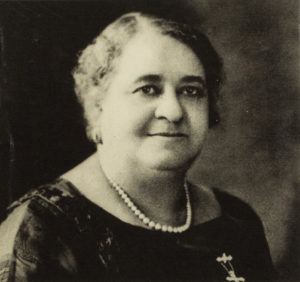 In honor of Black History Month, we are honoring key members of the African American community who have made a lasting impact on the financial industry.
In honor of Black History Month, we are honoring key members of the African American community who have made a lasting impact on the financial industry.
Maggie Lena Walker became this country’s first female African American bank president when she founded the St. Luke Penny Savings Bank in 1902. She also established a newspaper and department store, all in an effort to provide a path toward financial success for the African American community in her hometown of Richmond, Virginia.
Walker, who worked as a teacher during the day and took accounting classes at night in the early days of her career, said, “I was not born with a silver spoon in my mouth but instead with a clothes basket almost [always] on my head.”
According to her 1934 obituary, Walker’s mother was a former slave-turned-assistant cook in a private home, while her biological father, Irish immigrant Eccles Cuthbert, was an abolitionist and journalist, and the man who raised her, William Mitchell, was a butler.
Through grit and guile, Walker grew to be one of the most financially successful and influential members of her community. According to a 1902 article in The Negro Advocate, Walker was an eloquent and persuasive speaker.
“For fifteen minutes . . . such a speech, persuasive, musical and eloquent fell from her [Walker’s] lips as she called upon the black men of Virginia to stand up for their rights, to fight slavery, to live for their children and hers, caused old men and young men to weep.” . . .Closing, the house fairly quivered under the thunderous applause, while many who could grasped their hands as she passed from the chancel to the door, invoking God’s blessings upon her.”
Her ambition transcended her own family and encompassed the world around. She spoke up for equality of both races and genders, explaining that by building and supporting their own businesses, African Americans could “kill the lion of prejudice by ceasing to feed him.”
“Let woman choose her own vocation, just as a man does,” she said. “Let her go into business, let her make money, let her become independent, if possible, of man: let her marry, bringing something into the partnership, if not money, a trade or business—something else besides the mere clothes upon her body.”
She worked hard to staff all her businesses with people of color, particularly women. Of the 19 members of her Penny Savings Bank board, six were women. She believed firmly in education and worked hard to provide educational opportunities and to convince people to take advantage of them, helping fund a library, raising money to fund an all-female college and serving on its board.
Though she died 87 years ago, Walker’s influence remains. Her elegant home is now a museum and, in 2017, Richmond erected a statue in her honor.